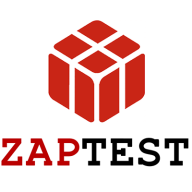

OpenText Functional Testing for Developers and ZAPTEST compete in functional testing for software development teams. ZAPTEST seems to have the upper hand due to its comprehensive feature set, offering more value despite higher costs.
Features: OpenText Functional Testing for Developers provides robust native integration capabilities, strong automation scripting support, and seamless integration with existing systems. ZAPTEST offers cross-platform compatibility, advanced automation for complex scenarios, and unique object detection and OCR functions.
Room for Improvement: OpenText could improve by expanding its cross-platform capabilities, enhancing automation for complex scenarios, and simplifying its scripting processes. ZAPTEST can focus on reducing its learning curve, improving its customer support options, and offering more competitive pricing solutions.
Ease of Deployment and Customer Service: OpenText Functional Testing for Developers supports seamless enterprise environment integration and is known for notable customer support services. ZAPTEST provides flexible deployment with one-click recording and scripting, though it might require a learning curve due to its extensive features.
Pricing and ROI: OpenText offers competitive pricing with straightforward setup costs, appealing to budget-conscious organizations, and provides favorable ROI due to its pricing structure. ZAPTEST tends to have higher upfront costs justified by its advanced features, with high ROI potential for full automation capabilities across diverse environments.
Initially, it was quite poor, but it seems they are making efforts to improve.
For technical support, I would give them an eight because whenever we have a concern, they immediately reach out to us.
We regularly update the product, and overall, it is stable.
In some cases, object recognition is not 100%, and a customized solution is necessary.
The price of OpenText UFT Developer is a bit higher than expected, but there are no better tools available for a valid comparison.
OpenText UFT Developer is user-friendly and integrates well with Visual Studio.
| Product | Market Share (%) |
|---|---|
| OpenText Functional Testing for Developers | 2.6% |
| ZAPTEST | 0.4% |
| Other | 97.0% |

| Company Size | Count |
|---|---|
| Small Business | 2 |
| Midsize Enterprise | 12 |
| Large Enterprise | 29 |
| Company Size | Count |
|---|---|
| Small Business | 3 |
| Midsize Enterprise | 1 |
| Large Enterprise | 5 |
OpenText Functional Testing for Developers offers robust automation capabilities with support for complex algorithms, multi-platform testing, and developer-friendly integration using C# and Java, facilitating seamless testing transitions and efficient automation workflows.
This testing tool is highly valued for its integration with ALM and Jenkins, along with its developer-focused environment adaptable to Eclipse and Visual Studio. With AI-based object recognition, an object repository, and test framework integration, it bolsters DevOps practices while reducing IT workloads. Supporting UFT to LeanFT transition, it caters to SAP, Java, .NET environments, and more. Enhanced with stable automation, extensive protocol support, and both on-premises and cloud deployments, it targets performance, regression, and functional testing, while recording and screengrabs enhance automation capabilities. Future improvements could include expanded browser compatibility, enhanced JavaScript and mobile support, and better object recognition.
What are the key features of OpenText Functional Testing for Developers?Organizations implement OpenText Functional Testing for complex test automation on desktop, web, and banking applications, supporting performance, regression, and functionality testing across environments like SAP, Java, and .NET. UFT aids in GUI, infrastructure, and ERP application automation, with deployment options including on-premises and cloud implementations. Enhanced screengrabs and recording features aid in practical test case development, while addressing emerging technology needs is a focus.
We monitor all Test Automation Tools reviews to prevent fraudulent reviews and keep review quality high. We do not post reviews by company employees or direct competitors. We validate each review for authenticity via cross-reference with LinkedIn, and personal follow-up with the reviewer when necessary.